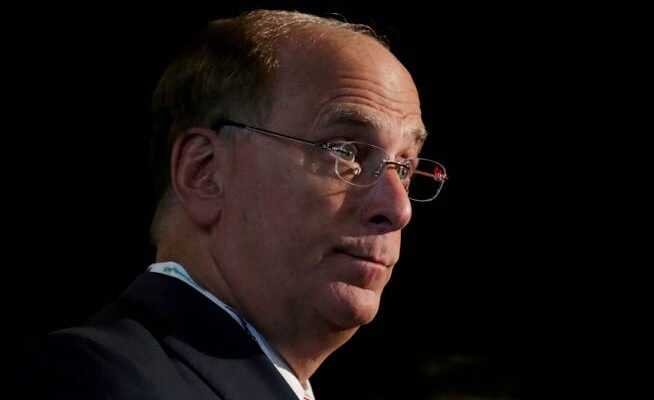In the eyes of the head of the world’s largest wealth manager, the brutal attack on Ukraine heralds the end of the globalized economic order. Supply chains are changing and inflation is picking up, but he hasn’t spared customers losses.
Larry Fink believes that supply chains will be realigned by companies in the future.
“Russia’s invasion of its neighboring country ended the world order to which we had become accustomed since the end of the Cold War,” writes Blackrock boss Larry Fink in a letter to its shareholders, On whose behalf he manages assets worth more than 10,000 billion dollars for investors from all over the world.
Russia ETF with hefty losses
In a similar letter five years ago, he had already warned of the consequences of the British Brexit, the erratic trade policy of the then US President Donald Trump and, in general, of the consequences of increasing geopolitical tensions. It’s just strange that some of his clients with investments like the iShares MSCI Russia ETF have lost billions together because the Russian economy and the country’s financial markets are largely cut off from the western world due to massive sanctions and have had to accept massive losses.
Now, he claims, globalization is finally over. Because Russia’s aggressive attitude will tempt companies and governments worldwide to reassess their political and economic dependencies. Many companies would now think more intensively about their production and assembly sites and possibly relocate them. This will accelerate the process that began with the Covid 19 crisis. “They will quickly withdraw from certain countries – and go, for example, to Mexico, Brazil, suitable regions in Southeast Asia or the USA,” argues the American.
Supply chain rebalancing is inflationary
“The large-scale realignment of supply chains will be inherently inflationary,” he said, and these impulses would be amplified by the “shift to greener energy sources,” which should accelerate, at least in the long term, due to recent events and high energy and commodity prices . But before “a broader spectrum of renewable energies can become financially competitive”, the world will have to spend a while replacing Russian oil and gas with “dirty” energy sources.
He is firmly convinced that in a transition phase one cannot do without fossil fuels such as natural gas, otherwise the energy would become unaffordable. It is precisely for this reason that he rejects all possibly well-intentioned demands to stop investing in “old energy sources” at all. Instead, he wants to help his customers manage the energy transition.
Interested in digital currencies – not crypto
As a further consequence of the Ukraine war, the man from New York identifies the increasing discussions about digital currencies – whereby he expressly avoids the term “crypto”. “The conflict will cause different countries to reassess their dependence on certain currencies,” writes Fink. Even before the war, some governments had taken a more active role in the digital currency debate, and some had even begun to define the regulatory framework for their potential use. In fact, the US Federal Reserve recently commissioned a study to examine the potential impact of a digital, “tokenized” dollar.
In fact, Fink reiterates what has been well known for some time, that a carefully designed global digital payment system can improve the processing of international transactions while reducing the risk of money laundering and corruption. In this way, cross-border payments could be made cheaper and faster – for example, if employees working abroad wanted to send their income back to their families at home. Blackrock obviously analyzes digital currencies, stablecoins and the associated technologies in order to be able to help interested customers if necessary.
Of course, Larry Fink also praises Blackrock’s business model over the green clover and speaks of further growth – despite the rocky start of the financial markets in the current year, despite the turbulence with Russia funds and despite the stagflation risks.
